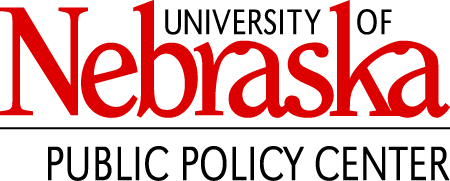Great Plains Disaster Behavioral Health Conference
The Great Plains Disaster Behavioral Health Conference is for psychiatrists, psychologists, social workers, mental health care providers, public health officials, nurses, clergy, emergency managers, and first responders to learn and recognize how to prepare and respond to the psychological effects of disaster and mass casualties.
2013 Conference
This year’s Great Plains Disaster Behavioral Health Conference focused on issues related to disaster, including resiliency, ethical issues, and children’s response to disaster.
July 12, 2013
Lincoln, Nebraska
Objectives
1
- Gain and apply knowledge of factors that predict outcomes after potentially traumatic life events.
2
Describe the technical, theoretical, and applied interests of the community prior to and following a traumatic life event.
3
- Identify and discuss common reactions in children after crisis events, and factors and interventions that moderate their reactions and promote resiliency.
Conference Speakers
George A. Bonanno, PhD
Professor of Clinical Psychology and director of Loss, Trauma, and Emotion Lab in the Department od Counseling of Clinical Psychology at Teacher’s College, Columbia University
George A. Bonanno is a professor of Clinical Psychology and director of the Loss, Trauma, and Emotion Lab in the Department of Counseling and Clinical Psychology at Teachers College, Columbia University. He received his Ph.D. from Yale University in 1991 and has been a visiting professor at the University of Hong Kong and at Cattolica Università in Milano, Italy. Professor Bonanno’s interests center on the question of how human beings cope with loss, trauma, and other forms of extreme adversity, with an emphasis on resilience and the salutary role of emotion regulatory processes.
Robin H. Gurwitch, PhD
Program coordinator for the National Center for School Crisis and Bereavement, professor in the Department of Psychiatry and Behavioral Sciences at Duke University
Robin H. Gurwitch is the program coordinator for the National Center for School Crisis and Bereavement. Additionally, Dr. Gurwitch is a professor in the Department of Psychiatry and Behavioral Sciences at Duke University School of Medicine. She has worked with the Department of Defense/Pentagon to develop materials for families and children whose parents are in Iraq and Afghanistan.
Chalmers C. Clark, PhD
Philosophy and business ethics teacher at Union College
Chalmers C. Clark teaches philosophy at Union College and business ethics for the School of Management, Union Graduate College. He also teaches bioethics in the Online Master’s program for the Neiswanger Institute of Bioethics, Stritch School of Medicine, Loyola University (Chicago). His background is in naturalized epistemology and biomedical ethics. Chalmers received his BS from Union College, magna cum laude, and his MA and PhD from the Graduate Center of the City University of New York (CUNY). Current work centers on trust relations in the medical profession; the professions as stewards of public trusts; and the role public trusts play in the basic structure of a free society.
Conference Materials

Conference Agenda
Speaker Recommended Materials
- Regulatory Flexibility: An Individual Differences Perspective on Coping and Emotion Regulation
- Resilience to Loss and Potential Trauma
- Annual Research Review: Positive adjustment to adversity – trajectories of minimal-impact resilience and emergent resilience
- Loss, Trauma, and Human Resilience: Have We Underestimated the Human Capacity to Thrive After Extremely Aversive Events?
- Reactions and Guidelines for Children Following Crisis and Trauma
- Listen, Protect, and Connect: Psychological First Aid for Children and Parents
- Listen, Protect, Connect – Model & Teach: Psychological First Aid (PFA) for Students and Teachers
- After a Crisis: Helping Young Children Heal
- Talking to Children about the Shooting
- National Child Traumatic Stress Network Tornado Response: Factsheets for Parents, Teachers, Children, and Teens
- Tornado Resources – 2013
- Professor Michael Sandel’s video “The Moral Side of Murder” (the first 24 minutes are particularly relevant)
Contacts
University of Nebraska Public Policy Center
Disclaimer
This website is part of a coordinated effort on behalf of the U.S. Federal Government and the Nebraska Department of Health and Human Services Division of Public Health, Division of Behavioral Health, and the University of Nebraska Public Policy Center. Funding was made possible [in part] by U3REP190555 from the Office of the Assistant Secretary for Preparedness and Response (ASPR). The views expressed in written materials or publications do not necessarily reflect the official policies of the U.S. Department of Health and Human Services or the Nebraska Department of Health and Human Services, Division of Public Health; nor does mention of trade names, commercial practices, or organizations imply endorsement by the U.S. Government or the State of Nebraska.





